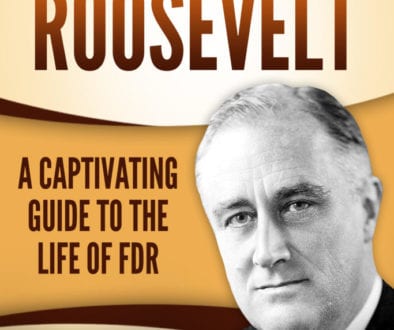The Story of Nancy Wake (1912-2011)
There is a story that when Nancy Wake parachuted into Nazi-occupied France in the spring of 1944, she got tangled up in a tree, and when the head of the local resistance unit pulled her down he said, “I hope all the trees in France bear such beautiful fruit this year,” to which she replied, “Don’t give me that French shit.”
That tale may be apocryphal, but it goes with the reputation she earned during the war, and even before it, as a quick-witted, adventurous, and courageous woman who knew what she wanted—and what she didn’t.
Wake was born in New Zealand, the youngest of six children. When she was two, her father moved the family to North Sydney, Australia, and then almost immediately took himself back to New Zealand, leaving his wife and children to fend for themselves.
Wake lived at home until she turned sixteen, then left and found work as a nurse. When a relative left her a few hundred pounds, she took off for New York, stayed there for a while, and then went on to London, where she began to develop her skills as a writer and reporter. She apparently learned well, and by the time she was eighteen she was in Paris working as a correspondent for the Hearst newspaper chain. While she was doing that, she got her first taste of Nazi mentality when she did a story in Vienna, and saw firsthand the violence that was being inflicted on the Jewish people in that city.
In 1939 Wake married a French businessman, Henri Edmond Fiocca, and settled into a comfortable life in Marseilles, on the south coast of France. That pleasant existence only lasted a few months, and then World War Two began. Wake and her husband immediately got involved. Early in the war, Wake served as a nurse and ambulance driver in Belgium, fleeing back to Marseilles after Dunkirk. She and her husband joined a network of resistance fighters there, buying and setting up a safe house, and helping soldiers and airmen trapped by the fall of France, guiding them over the Pyrenees to Portugal, from where they could ultimately get back to England.
Initially, Vichy, France, of which Marseilles was a part, was technically a separate state from that part of the country occupied by Germany. But when the Allies invaded North Africa, the Germans occupied the rest of France. The maquisard, the French resistance fighters, continued to maintain their escape network, and Wake was one of their most successful operatives. She was credited with saving more than two hundred stranded pilots and soldiers. The Germans called her the White Mouse, and ultimately put a price on her head of five million francs.
Then, in 1943, the network she and her husband worked for was betrayed. After several botched tries, Wake managed to get across the mountains into Portugal, and then on to England. Her husband stayed behind, and was captured and tortured, and eventually shot. Wake did not learn of his death until after the war.
It wasn’t long before Wake was back across the English Channel again. She was recruited by the British Special Operations Executive and went through a period of intense training—spycraft, communications, hand-to-hand combat, firearms—and then climbed into an airplane, flew across the Channel, and parachuted into the Auvergne, in the mountains of central France, where she was assigned to be the liaison person for the local resistance unit. Her job was to manage and coordinate the cash, arms, and supplies airdropped by the Allies.
Wake was there for the rest of the war, and she did not limit herself to her assigned liaison duties. She fought and went on raids against German installations. Once, she crept up on a German guard and killed him with a karate chop. She had been taught that during her Special Operations training, but said later that she was actually surprised that it worked. She earned a reputation for fearlessness, and also for ruthlessness. At one time, her maquisards captured a young girl who had been spying for the Germans. The men were reluctant to kill her because of her sex. Wake told them that if they weren’t willing to do the job, she would do it for them. Shamed, they carried out the execution.
In later years she would say, “I was not a very nice person. And it didn’t put me off my breakfast.”
After the war, Wake was awarded the George Medal for Bravery, the U.S Medal of Freedom, the Medaille de la Resistance, and the Croix de Guerre, but she seems to have had a hard time finding a peacetime calling. She said herself that postwar life was “dreadful because you’ve been so busy and then it all just fizzles out.” She returned to England and worked for a while for the British Air Ministry, then went back to Australia.
In Australia, she tried a run for political office and lost, and in 1951 she returned to England. She went back to work at the Air Ministry as an intelligence officer, and in 1957 she married a Royal Air Force officer, John Forward.
Wake and Forward moved back to Australia in the 1960’s where she tried another run for public office, but with no more luck that the previous time. Forward died in 1997, and four years later Wake went back to London one last time. She lived there until her death at the age of 98, and at her request, her ashes were scattered over the mountains of the Auvergne.
I hope you enjoyed the story about Nancy Wake. For more captivating stories, check out my author page!



